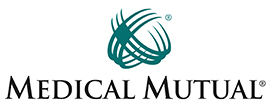What is Optimal Aging?

Over the years, different models and terms have been proposed to describe and evaluate factors and conditions contributing to leading a full life through middle- and later-adulthood, or “aging well.” Two terms, “optimal aging” and “successful aging,” are often heard, but are not interchangeable, when one considers these definitions:
Optimal aging: the capacity to function across many domains—physical, functional, cognitive, emotional, social and spiritual—to one’s satisfaction and in spite of one’s medical conditions. 1,2
Successful aging: absence of disease and disability; high cognitive and physical functioning; and active engagement with life.3
The above definition of “successful aging” raises the question: Is a person who has experienced a stroke a “failure” at aging, because that person’s physical functioning might be compromised? People working in the field of aging continue to debate which terms to use, as related in this article by Helen Dennis. However, it is clearly evident that many middle-aged and older people who may have more than one chronic medical condition can enjoy their lives to the fullest.
The Optimal Aging Institute at BGSU is focused on helping individuals learn more about the dimensions of wellness—physical, emotional, intellectual, social, spiritual, cultural, and occupational—so that they can better adjust and adapt to life’s challenges and stressors. If one can be resilient, then one can age optimally.
References
1. Baltes PB, Baltes MM. Psychological perspectives on successful aging: The model of selective optimization with compensation. In: Baltes PB, Baltes MM, eds. Successful Aging: Perspectives from the Behavioral Sciences. Cambridge, UK: Press Syndicate of the University of Cambridge; 1990:1-34.Walsh
2. Brummel-Smith K, Optimal Aging, Part I: Demographics and Definitions, Annals of Long-Term Care, 2007; 15: 26 – 28
3. Rowe JW, Kahn RL. Successful aging. Gerontologist 1997;37:433-440
Updated: 08/24/2020 08:23AM


